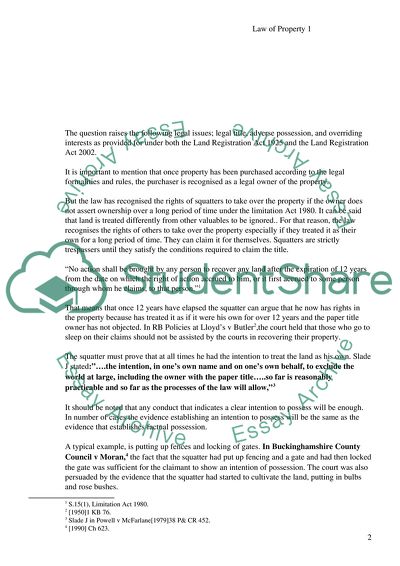Cite this document
(The Land Registration Act 1925 and the Land Registration Act 2002 Case Study, n.d.)
The Land Registration Act 1925 and the Land Registration Act 2002 Case Study. Retrieved from https://studentshare.org/law/1735136-problem-question-in-land-law
The Land Registration Act 1925 and the Land Registration Act 2002 Case Study. Retrieved from https://studentshare.org/law/1735136-problem-question-in-land-law
(The Land Registration Act 1925 and the Land Registration Act 2002 Case Study)
The Land Registration Act 1925 and the Land Registration Act 2002 Case Study. https://studentshare.org/law/1735136-problem-question-in-land-law.
The Land Registration Act 1925 and the Land Registration Act 2002 Case Study. https://studentshare.org/law/1735136-problem-question-in-land-law.
“The Land Registration Act 1925 and the Land Registration Act 2002 Case Study”. https://studentshare.org/law/1735136-problem-question-in-land-law.


